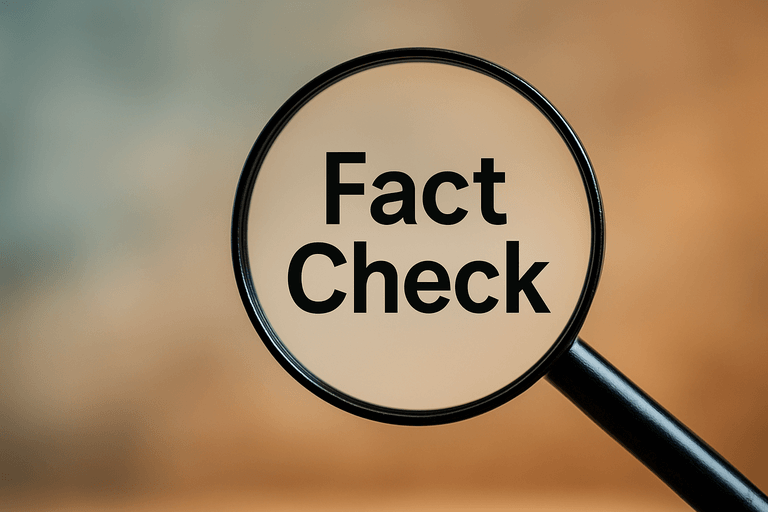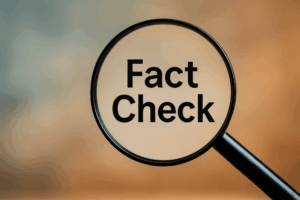
In May 2025, the U.S. House of Representatives passed the “One Big Beautiful Bill,” a comprehensive tax and spending package.
Proponents argue that the bill aims to strengthen programs like Medicaid and the Supplemental Nutrition Assistance Program (SNAP) through reforms. Critics contend that it introduces significant cuts and stricter eligibility requirements.
Medicaid and SNAP: Cuts or Reforms?
Claim: The bill cuts Medicaid or SNAP benefits .
Fact Check: FALSE
The bill does NOT cut Medicare or SNAP benefits. Instead it introduces work requirements for able bodied recipients. These work requirements can be volunteer work or paid work.
As a result of this, the it is expected that more able bodied people will get back to work and hence:
- Free up more facilities for the truly deserving – old, disabled, single parents, and those with dependent care needs
- Due to these reforms and more efficiency initiatives, the overall spending can be reduced by approximately $880 billion over the next 10 years.
The bill mandates that able-bodied adults aged 19 to 64 without dependents must engage in approximately 20 hours per week of work, volunteering, or education to maintain Medicaid eligibility. Similar requirements apply to SNAP recipients.
Non-Citizens Receiving Benefits
Claim: 1.4 million non-U.S. citizens or non-permanent residents are receiving benefits through the states.
Fact Check: True
The Congressional Budget Office (CBO) estimates that approximately 1.4 million individuals without verified citizenship or satisfactory immigration status receive health coverage through state-funded programs, not federal Medicaid. The bill seeks to penalize states that provide such coverage, potentially leading to these individuals losing access to state-funded health benefits.
Freeing up funding that goes to those illegally here will make more benefits available to the intended recipients – old, disabled, single parents, or those with dependent care needs.
It’s important to note that undocumented immigrants are generally ineligible to receive direct federal Medicaid and SNAP benefits. So this state funding loophole is being closed by the bill.
Impact on Health Coverage
Claim: 13 million Americans will lose their health care due to the bill.
Fact Check: False
-
The loss of coverage comes from more people getting voluntary off Medicaid because they are now working, have increased wealth due to tax reductions, or have improved job opportunities due to focus on job creation. It’s not that people will lose coverage because of the bill.
The claims in the that there will be widespread loss of health coverage are false.
On Misleading Framing: “Losing Coverage”
Opponents of the bill often claim that “millions will lose health coverage” – a deeply misleading and manipulative assertion.
It’s important to understand what this actually means: the bill introduces new eligibility standards, like work or volunteer requirements, and closes loopholes for non-citizens receiving state-funded benefits. If someone doesn’t meet those standards, they no longer qualify. That’s not the same as the government actively taking coverage away.
To put it in perspective: if a university raises its admission criteria for an engineering program from a 3.0 to a 3.5 GPA, some students won’t be accepted. But to say the policy “caused thousands of students to lose access to STEM education” would be manipulative. In the same way, critics of the bill obscure the truth when they frame the loss of coverage as an arbitrary harm, rather than a deliberate shift in policy to prioritize the truly needy and promote self-reliance.
The misleading propaganda intentionally sidesteps the policy’s purpose — to ensure benefits are focused on the elderly, disabled, and those with genuine need, while encouraging able-bodied recipients to transition into work or education.
Conclusion
The 2025 tax bill introduces work requirements aimed at promoting employment among beneficiaries. As a result it gets people off Medicaid and into the workforce.
So the claims that it cuts Medicaid and snap is false. The claim that the bill cuts benefits is therefore misleading.



